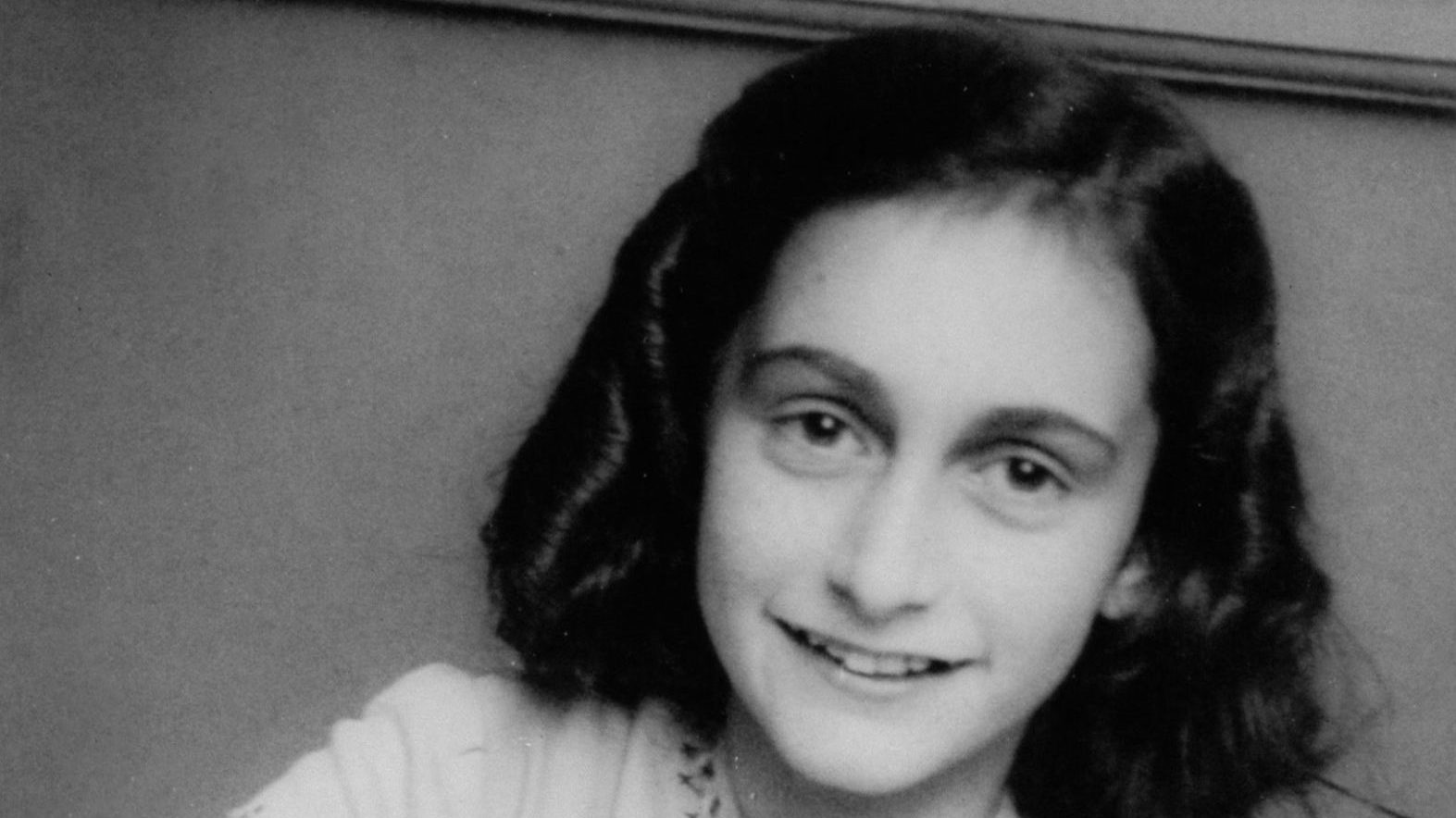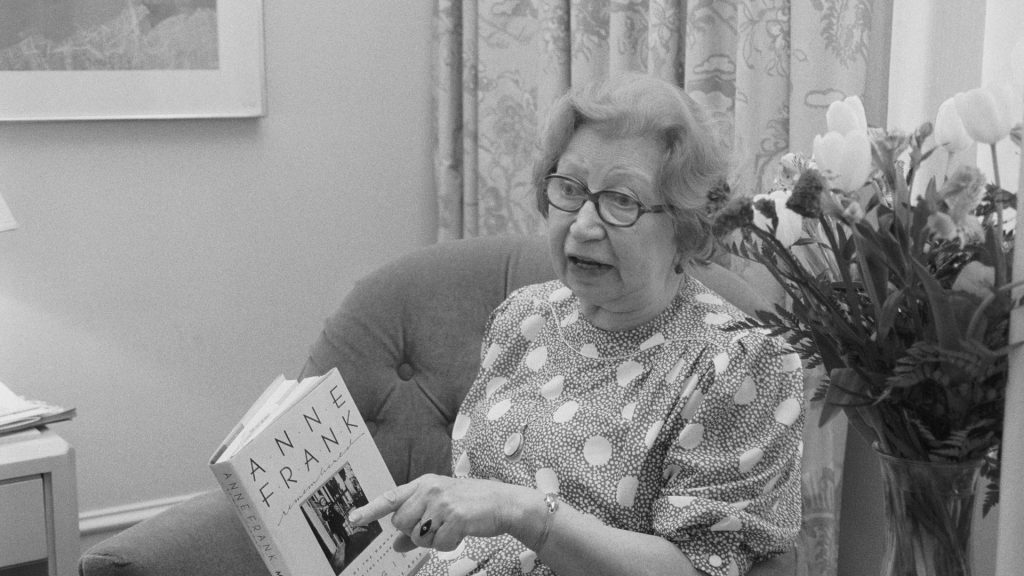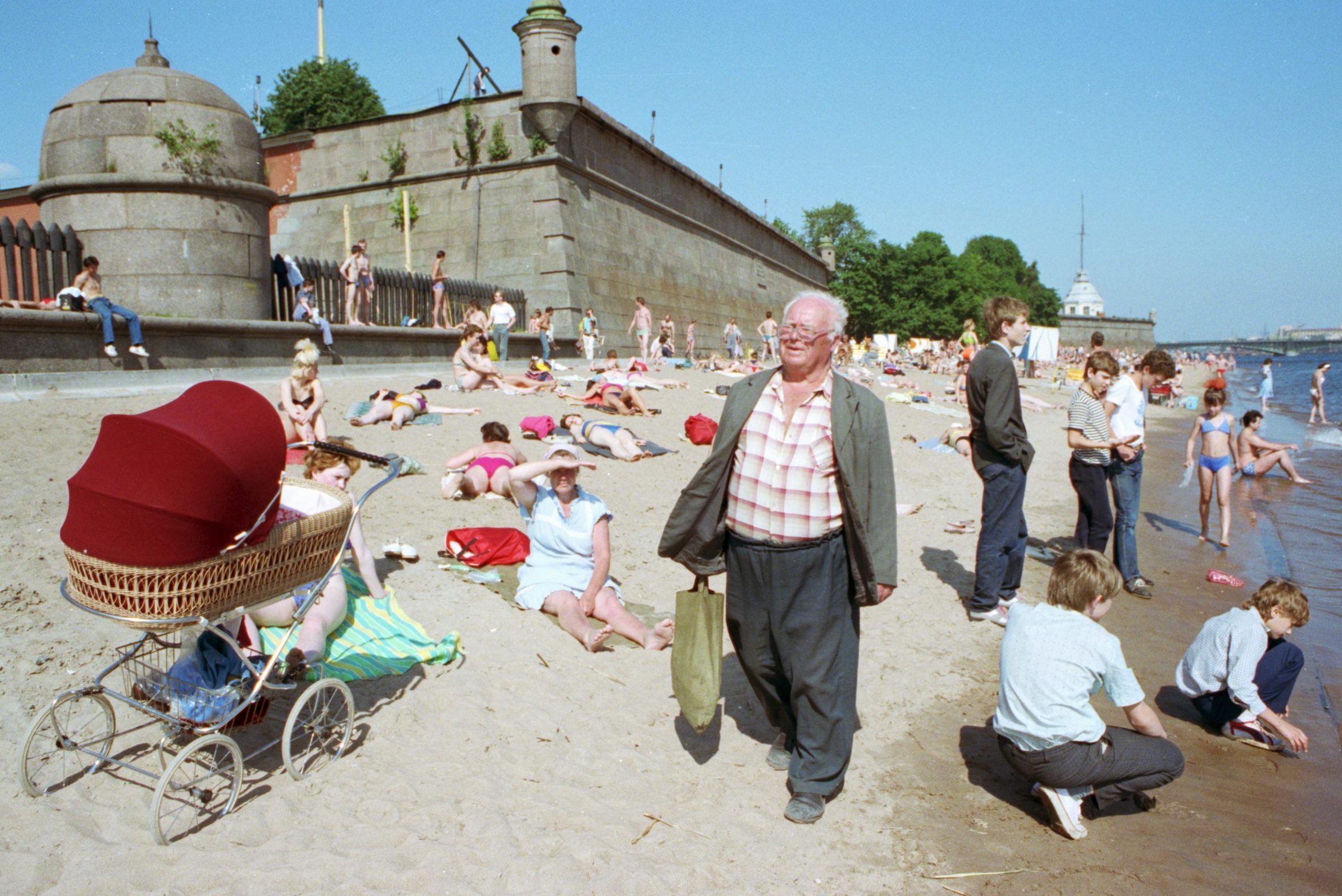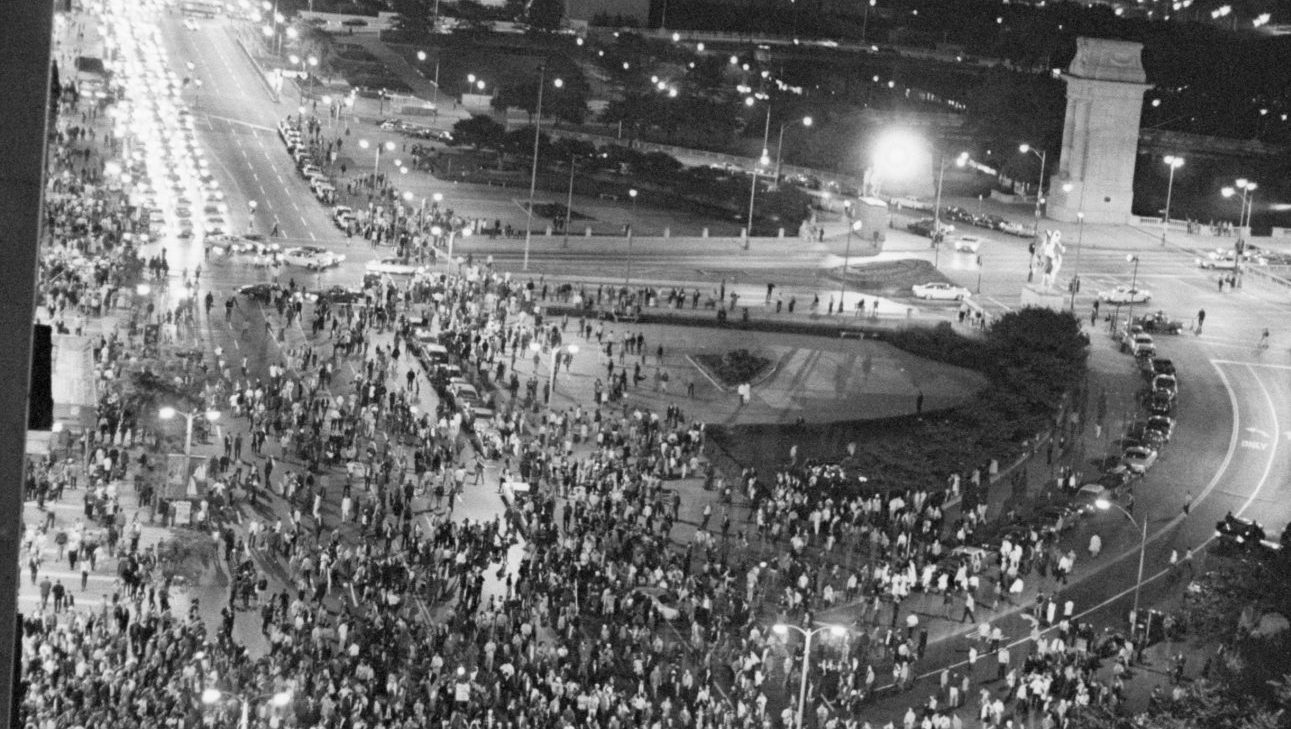
Credit: Wikipedia
You’ve heard of Anne Frank, yes? But what about Miep Gies? Well, without her we would never have heard of Anne Frank either.
Funny how history works. Anne Frank with huge levels of public awareness the world over; Miep Gies… go on, be honest, you don’t know, do you? She was one of the tiny number of ‘helpers,’ non-Jews in on the secret that the Franks and the van Pels, and a dentist who ended up sharing a room with the young Anne, were living in hiding in an annexe concealed behind a bookcase in the Amsterdam building where her father had worked, and she had worked for him.
Gies would source and deliver food, organise others to do so, books too, which Anne in particular devoured. But when it comes to history it is for her role in bringing Anne Frank’s diary to the attention of the world that Gies has a worthy place in it. On the day, 77 years ago last week, that the eight secret inhabitants of the back rooms of 263 Prinsengracht, Amsterdam, were betrayed, arrested, and sent to various prisons and then concentration camps, she went back after the police were gone, and discovered the collection of notebooks in which Anne had been recording her thoughts and experiences.
Anne and her older sister Margot died of typhoid in Belsen a few weeks before the war ended. Only one of the eight – their father Otto, who was sent to Auschwitz – survived. When Gies learned he was still alive, and Anne dead, she handed him the books. Stunned when he read them, he effectively devoted the rest of his life to promoting the story his daughter had told, for more than two years, in letters to an imaginary friend, Kitty.
So why my sudden interest in a book that was first published in 1947, has been translated into more than 70 languages and has its own museum? The answer lies in a change in my holiday reading habits.
Normally I take a look through the large pile of unread books by my bed, pick out a mix of fiction and non-fiction, and pack them. But this year every holiday book had to be in German – all part of my rediscovery of a language I learned to degree level and then spent decades gradually forgetting. So off I went on a little tour of bookshops and there, in Waterstones’ Gower Street branch, translated from Dutch to Deutsch, was Anne Frank Tagebuch…
Go on, those of you who have heard of Anne Frank, but like me never read her diary, what do you think it is like? Do you share the sense I had that it was just the childlike tellings of a young girl on the privations of war and persecution, railing against the Nazis, worrying that her life was being stolen from her?
Well, there were bits of all of that, but so much more, that I just did not expect. I certainly didn’t expect that a teenager – 13 when the diary starts in 1942, 15 and a half when it ends – could write so clearly, so beautifully, and with such depth, about life and love, relationships, families, statecraft, books, culture.
No wonder her father was shocked when he first read it. On the privations, though they are considerable, she doesn’t overdo the telling of them. When I think of how much we all moaned about the – by comparison – minuscule difficulties of lockdown, I am not sure I could have remained so generally calm and accepting of being forced to hide, share a bedroom with a dentist I didn’t like, live much of the day in silence, not allowed to go out, and all the time having to come to terms with the fact that because of the religion into which I was born, I must live in fear of being found, shipped to a concentration camp, and likely killed.

Those truly exceptional circumstances quickly recede into the background, brought forward from time to time when they learn something from the radio news – Churchill clearly a hero to her – or from their helpers as they deliver an endless diet of potatoes and bad vegetables.
It is ultimately the story of her and her family’s life, the life of the van Pels, and the dentist, and the very up and down nature of all those relationships. The story of what develops into a loathing of her mother is profoundly sad, all the sadder as we can reasonably assume there was no opportunity for reconciliation post-arrest and pre-death.
It is also a story of sexual awakening, as she first fantasises about, and then develops, a relationship with the van Pels’ only child, Peter. Some sections, for example of her describing in detail her own sexual organs, were omitted from earlier editions on grounds of public taste. I did however learn some new words, one of which is likely to feature in the future gags of my feminist comedian daughter Grace, who has written a book about shame – namely that the German for labia is Schamenlippen. Shame lips indeed!
A good book for me is one that I find myself thinking about long after I have read it. This definitely fits that bill. Several really strong impressions keep coming to the fore.
The first was how quickly the utterly appalling situation in which they find themselves is normalised. The immediacy of her writing, and the minute detail of their lives, take you to an all too believable world. Within a few pages, you’re not raging against the Nazis because they barely figure. Hitler hardly gets a mention. You’re wondering how the two sets of parents will
get on, you’re wondering about the state of their marriages, how Anne finds the time to read so many books and write about them in such detail.
You’re wondering if anything is going to happen between her and Peter. (Spoiler alert: it does, in a wartime teenage kind of way.) But life is going on, political and military forces are at play, and they all feel powerless because they are powerless, to do anything but hide.
And without comparing the suffering of then with the problems of now, this sense of the abnormal becoming normalised, and the widespread helplessness felt by many, resonated strongly, whether thinking of climate change globally, or the normalisation of lying, corruption and seeming impunity at home. History doesn’t repeat itself exactly, but it does repeat itself.
On the more positive side, the second strong impression was that despite the context of evil, Anne is constantly looking for and finding good, not least in people like Miep Gies. Perhaps the modern resonance was all the more powerful as I was reading the book while in Britain a debate was raging, that boiled down to this: should an organisation which exists to save lives at sea, the RNLI, bother rescuing people in dinghies, many of whom happen to be escaping war and persecution? Which honestly left me wondering what kind of country Britain has become, that there are people who would presumably rather they just drowned.
But the line that took my breath away was this – at one point Anne Frank, then 14, with ambitions to be a writer or journalist, and determined not to be like her mother, wrote: “Ich will fortleben, auch nach meinem Tod” – “I want to live on, even after my death”. Less than a year later, she was dead, but has lived on, in the words she wrote, and the effect they have had on successive generations.
Can anyone remember the name of the Dutch monarch, or the head of the Dutch government-in-exile at the time Anne Frank was writing? No? Me neither. Is it too much to imagine that when the history of the period we are living through is written, it will be defined less by the Trumps, Johnsons, Putins and Bolsonaros of the world, than by people yet to come to public prominence?
Maybe it is, but it won’t stop me hoping that out there right now are people of whom we are largely unaware, but who are thinking, saying, writing and doing things that ultimately will help to set the world on a different and better course than the one on which so many of its so-called leaders are taking it. Bizarrely, for all the horrors of the context, and the knowledge we have from Page 1 that Anne Frank’s life will end so young, her diary left me feeling more hopeful than I expected to when I picked it up.
And to those who say only the good, like Anne Frank, die young, Miep Gies passed away on January 11, 2010, a month short of her 101st birthday.
How her words reached the world
1942
June 12
Anne Frank receives a diary (actually a blank autograph book) for her 13th birthday. Her first entry is on June 14. She writes in Dutch
July 6
The Franks go into hiding in the Secret Annex
1943
Anne begins the second and third volumes of her diaries
1944
March 29
Anne hears a radio appeal for “ordinary documents – a diary, letters” compiled during wartime to be preserved for future posterity
May 20
Anne begins to rewrite and expand upon her original diaries. She plans to publish them under the title Het Achterhuis (The Secret Annex)
August 1
Anne writes what will be the final entry in her diary
August 4
The eight residents of the Secret Annex are discovered. Helper Miep Gies recovers Anne’s original and reworked diaries before the Gestapo conduct a search, although Anne’s original notebooks from 1943 are lost
September 4
The Franks are deported to Auschwitz-Birkenau. In October, Anne and Margot are transferred to Bergen-Belsen
1945
January 6
Edith Frank, Anne’s mother, dies at Auschwitz-Birkenau
January 27
Otto Frank is liberated from Auschwitz by the Soviet Army. In May, he returns to Amsterdam to concentrate on the search for Anne and Margot, learning en route of Edith’s death
February
Margot and Anne contract typhus and die within days of one another
June 3
Otto learns of Anne’s and Margot’s deaths. Gies returns Anne’s notebooks and papers, telling Otto: “Here is your daughter Anne’s legacy to you”
September
Otto begins to share extracts from Anne’s diaries with surviving family members
1946
April 3
A news story about the diaries in Amsterdam newspaper Het Parool brings wider interest. Subsequently, Otto begins work to prepare the diaries for publication, taking the bulk of the rewritten Secret Annex and adding diary entries from March 29 1944 onwards, some deleted original diary material and some of Anne’s short stories
1947
June 25
The first edition of The Secret Annex is published in Dutch, in an edition of 3,036 copies. By the end of 1948, around 20,000 copies have been sold
1950
The first French and German editions are published but sell only modestly
1952
June 15
An enthusiastic review in the New York Times Book Review makes the American edition a sensation; 60,000 copies are quickly sold
1955
A West German paperback edition becomes a hit, with 700,000 sales. A stage version of the diaries is launched in the US and West Germany
1956-Present
The diary goes on to sell 30million copies in 70 different languages



